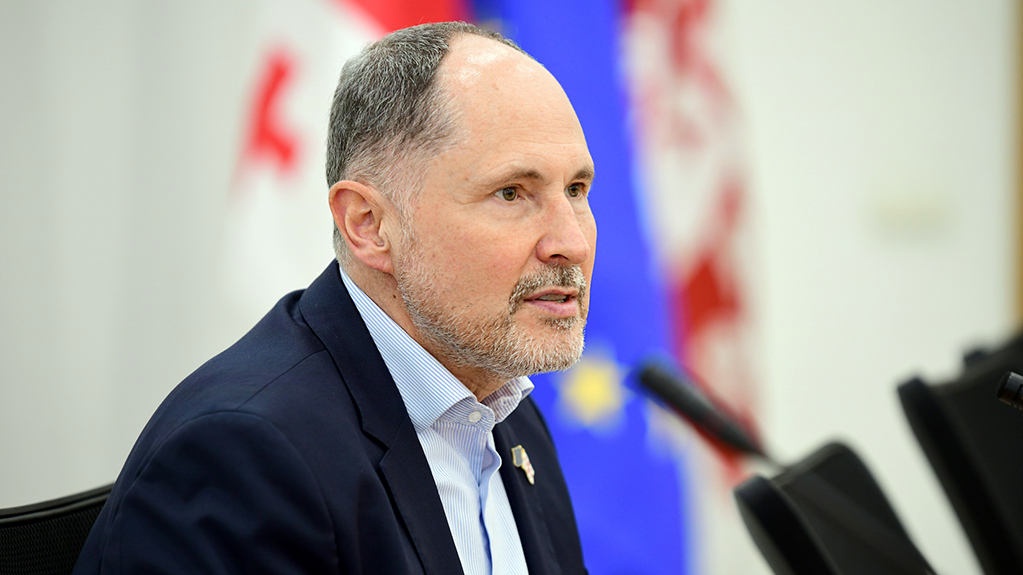“It is with great regret that I have to tell you that we are currently going through a difficult period in our relationship. We have repeatedly said that the adoption of the "Foreign Influence" law would have a negative impact on Georgia's aspirations to join the European Union, and unfortunately, this has happened,” the Ambassador of the European Union to Georgia, Paweł Herczyński says.
News
Journalists asked Herczyński about Prime Minister Irakli Kobakhidze's recent statement, which suggested that the chances of opening negotiations with the European Union increased after the adoption of the Russian Law. The EU ambassador responded that the adoption of the law had a negative impact on Georgia's prospects for progress.
“In principle, the adoption of this law, as I see it, froze Georgia's integration into the European Union. As you know, integration into the European Union requires unanimity, and we have already heard that several member states have publicly stated that if this law is adopted, they will be against the opening of accession negotiations with Georgia.
This was said loud and clear by my superiors, the President of the European Commission himself, as well as the High Representative/Vice President, all options are on the table. The services of the European Commission and the External Action Service have prepared various options for us. This has been shared with EU member states and member states will decide which option to implement from this menu. These decisions must be taken at the level of foreign ministers on Monday in Luxembourg, and then at the level of the European Council on June 27, at the level of presidents and prime ministers, the highest level in the EU. I would like to add that this is happening in the context of the opening of accession negotiations between Ukraine and Moldova next week. So,
it really breaks my heart to see that the process of Georgia's integration into the European Union is practically stopped, practically frozen, and at the same time, we are moving forward with Ukraine and Moldova,” said the EU Ambassador to Georgia.
The Prime Minister of Georgia, Irakli Kobakhidze, claims that after the adoption of the Russian Law, the chances of opening negotiations on joining the European Union have increased by 20-30%.
"Before the initiation of the law, there was zero chance of opening negotiations. The meetings held with specific representatives of the European Union allowed us to draw this logical conclusion. After the adoption of the law, this chance has increased to approximately 20-30%, although this is the current situation," Kobakhidze told journalists on June 17, noting that the so-called Global War Party is blackmailing Georgia with the topic of opening negotiations.
Recently, the Estonian Parliament adopted a statement titled On the Crisis of Democracy in Georgia, which asserts that Estonia should block all further processes of Georgia's accession to the European Union until the law on transparency of foreign influence is repealed. The Riigikogu also believes it is necessary for Estonia to support the suspension of visa liberalization for Georgia. Prior to this, the German ambassador to Georgia, Peter Fischer, stated that accession negotiations for Georgia will not be opened under the Russian Law on the so-called Foreign Agents.















